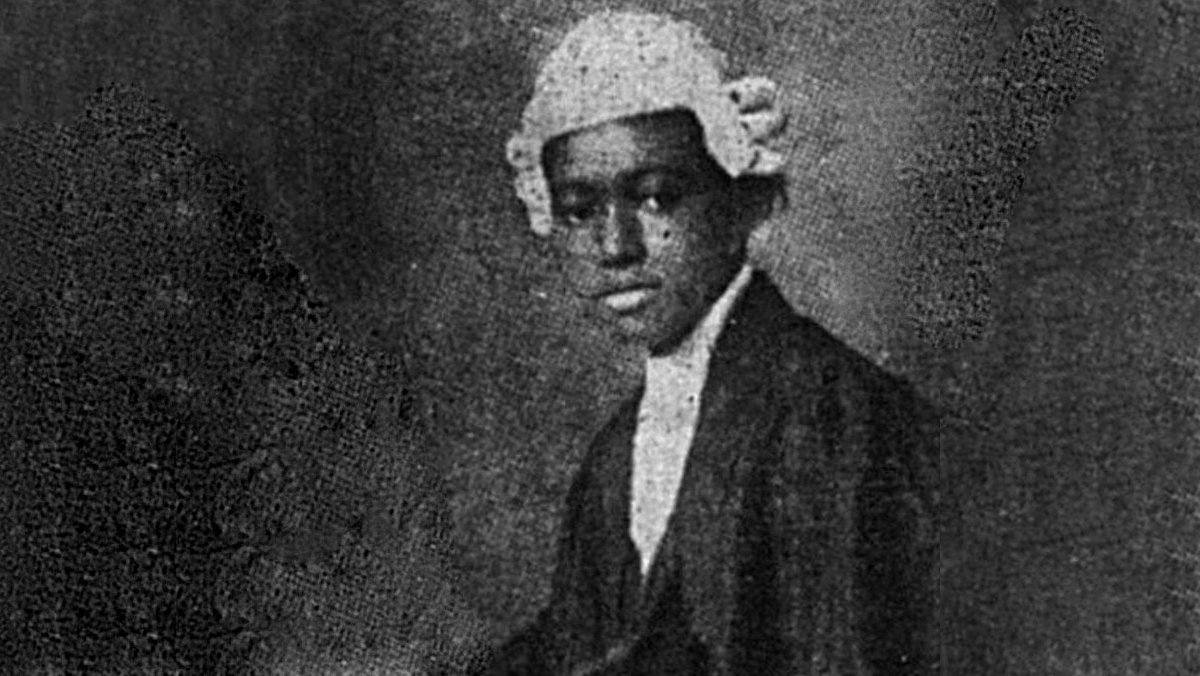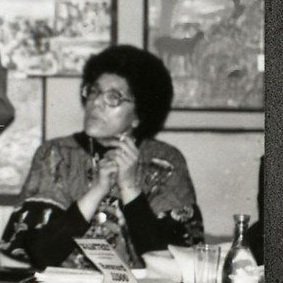Bulletin No. 26
SALUTING OUR SISTERS: Honouring the Legacy of Black Women in the British Legal System
Discussion
As the leaves start to fall and the nights draw closer, October brings with it a series of events and festivities, perhaps the most important one being to celebrate and honour the culture, politics, and history of Black British people; Black History Month, which has been celebrated in the UK since 1987.
Black History Month recognises and celebrates the invaluable contributions of Black people to British society, empowering and inspiring future generations. It is an opportunity to reflect on the contributions and achievements of people of African and Caribbean descent and their struggles against injustice and inequality. This year it is even more special as Black History Month falls on the 75th anniversary of the arrival of the passengers of the Empire Windrush in the UK.
The Theme
The theme for this year's month is "Celebrating our Sisters, Saluting our Sisters, and Honouring Matriarchs of Movements" with the slogan #wematter. It is aimed at honoring the achievements of Black women who are often the forgotten heroines and highlighting the crucial role that Black women have played in shaping history, inspiring change, and building communities.
Organisers have said that this year’s event will focus on “exploring themes such as resilience, self-care, and well-being, underscoring the strength and determination of Black women throughout history.”
Sadiq Khan, the Mayor of London, said: “Since being mayor, I have hosted an annual reception to mark Black History Month. This year, I’m looking forward to celebrating the remarkable contributions that pioneering Black women have made in shaping our history and inspiring change.
“We will highlight the pioneering voices that have led to changes to the landscape of our city, from the contributions of the Windrush generation to our NHS and media.”
Some Notable Black Women who Shaped our Legal Justice System
Stella Thomas
Stella Thomas was born in 1906 in Nigeria. She moved to the UK to study law at Oxford University, where she was active with the West African Students Union. Stella was one of the founding members of the League of Coloured Peoples (LPC) in 1931. In 1933, Stella was called to the bar, becoming the first Black African woman called to the bar in Britain. In 1934, she was the only African woman to participate in a discussion at the Royal Society of Arts, where she criticised African colonialism.
Kath Locke
Kath Locke was born in Manchester in 1928. An active member of Moss Side community politics, she campaigned for teaching Black history, and persuaded Manchester City Council to commemorate the 1945 Pan-African Congress with a red plaque on the wall of Chorlton Town Hall. She also campaigned against the poll tax and educational materials which stereotyped and disenfranchised Black people.
In 1980 Kath Locke and Elouise Edwards launched the Abasindi Co-operative, a self-help women's organisation for Black women in Manchester. Within a few years, Abasindi was leading a variety of community projects out of the Moss Side People’s Centre, ranging from health support, youth engagement and supplementary education.
Mavis Best
Mavis Best played a significant role in scrapping the infamous Sus laws of the 1970s & 80s. The Sus Law (Section 4 of the 1824 Vagrancy Act) was maipulated by police to racially profile, stop, search, arrest, detain and assault young Black men and women.
Baroness Amos
She is the first Black woman member of the House of Lords, appointed on 27 September 1997, and the first Black woman in the Cabinet when she was made International Development Secretary in 2003.
She is also the first Black person to be Leader of the House of Lords. For Saluting our Sisters this Black History Month, we mark 20 years since her appointment as Leader on 6 October 2003.
Baroness Patricia Scotland
She became the first Black woman to be appointed a Queen’s Counsel in 1991. She was elected at the 2015 Commonwealth Heads of Government Meeting and took office on 1 April 2016. She is the first woman to hold the post.
Dame Linda Dobbs
She was the first non-white person to be appointed to the senior judiciary of England and Wales in 2004. Of her appointment to the High Court, she said: "Whilst this appointment might be seen as casting me into the role of standard bearer, I am simply a practitioner following a career path. I am confident, nevertheless, that I am the first of many to come."
Charity Spotlight
Support and Action for Women’s Network
Support and Action for Women’s Network – SAWN was established in 2007 to promote the welfare of Black African women in Oldham.
SAWN work predominantly with Black African women and families, who are first generation immigrants in the UK. These families are a minority within the BAME community, especially in Oldham. Many of whom are living with poor mental health and physical health. Some of the important things they do include:
Support Hub
The Support Hub provides a safe space for Black African women, where they are able to learn how to become self- sufficient members of the community and support their peers.
The Furniture Hub allows anyone to buy pre-loved items at an affordable price. If you would also like to donate an item of furniture you can contact the team.
GROWE
GROWE provides access to green space to grow food and create opportunities for women, whilst increasing participation with climate action.
Kadalie House
A safe space for single Black African women, where they can recharge, reflect and plan their future with confidence.
To join or support, visit the website for more information: https://sawn.org.uk/
Internal and External Opportunities
Internal Opportunities
The University of Manchester is running a variety of events this month to commemorate Black History Month such as a Film screening in the Manchester Museum on 25th October and a variety of workshops. To register and see more events, click here: https://www.staffnet.manchester.ac.uk/news/display/?id=30345#:~:text=As%20we%20celebrate%20Black%20History,to%20see%20the%20University%20of
The SU is also organising a series of online and in-person events throughout the month such as online exhibitions, craft corners and panel discussions. Find more information here: https://manchesterstudentsunion.com/blackhistorymonth
External Opportunities
Manchester libraries workshops
Three of Manchester’s libraries will host a series of free workshops where people can research and retell the stories of inspirational Black women through comics.
Adults and children aged eight or above can get involved in the creative writing and drawing sessions in local libraries. They will take place at Brooklands Library on October 3 (3.15pm), Gorton Library on October 5 (3.30pm) and Abraham Moss Library on October 6 (3.15pm).






